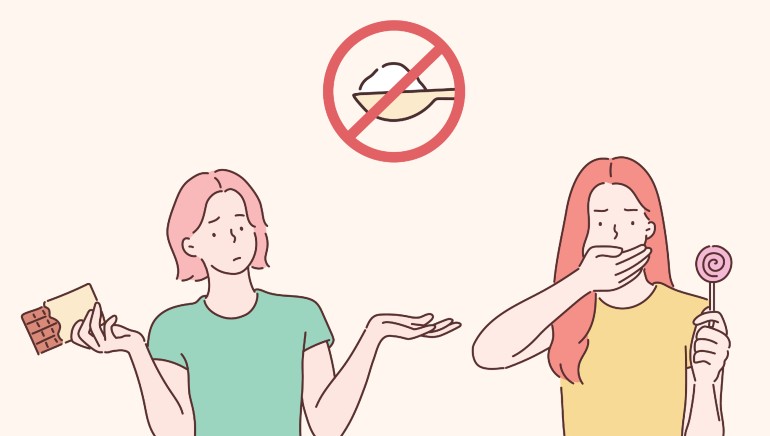Chat with ![]()
Chat with ![]()

Raise your hand if you’ve ever eaten till you felt full to your throat, but still ordered a dessert at the restaurant anyway. Raise your hand if you’d rather puke afterwards than skip dessert after a heavy meal. Raise your hand if every meal seems incomplete without a dessert or a sweet in the end.
No need to raise your hand anymore. Because your agreement with all the points above has made it abundantly clear that you’ve got a dessert stomach, which makes it almost impossible for you to beat sugar cravings.
According to a study conducted at the Penn State University, U.S., a regular meal with its salty taste might be something that you’re used to eating and thus, as you eat more of the food your sensory organs might not make you feel satiated. Enter: A sweet-tasting dessert, which gives your senses a “different taste” and you’ll finally feel like you’re full and that your meal is complete. Hence, there’s always room for dessert and this is exactly what the researchers term as a dessert stomach.
In fact, according to Mr. Ruhaan Rajput, nutritionist and founder at Gloss Clinic, Mumbai, sugar’s relaxing effect has a part to play here as well as eating dessert after a meal can pleasure the senses. And it is the same pleasure that we crave for after every meal—no matter how much we’ve already eaten.
That’s the thing about sugar: it tastes sweet, but is extremely bitter for your health. And your dessert stomach can make it even worse.
“Honestly, dessert stomach would be greatly helpful during a famine, but in modern times, when food is readily available and affordable to most, it can seriously backfire,” Rajput warns.
“As far as the eating capability is concerned, the stomach is a flexible organ and is always ready to absorb more food. And since, eating sweets can help the stomach to relax and take in more food, you will always need a little more to satiate your sensory system. This increase in appetite is terrible for your waistline,” he adds.
That’s not it. According to Rajput, it can even lead to bloating, binge eating, drowsiness, nausea, and obesity and diabetes in the long run. But don’t worry. You can triumph over your dessert stomach like a boss. Here’s how:
If you have access to sweets in your house, then it is very hard to resist. But, you can always avoid stocking up on sweets at home by not stepping into the ‘sweets’ aisle of the supermarket in the first place.
For desperate times, when you just can’t control the sugar cravings, you can stock up on healthy substitutes.
“Whenever you have a strong craving for sugar, drink a glass of water sip by sip, make some tea, eat a fruit, or go for a relaxing bath. This way, you will feel pleasurable without having it received from sugar,” Rajput suggests.
There’s no second guessing the fact that having an early dinner, say, by 7 p.m. when your bedtime is no sooner than midnight can make you feel hungry and indulge in readily-available desserts. However, according to Rajput, delaying your dinner time and having it 2-3 hours before dozing off can help you beat that hunger and sleep with a full-belly sensation.
Your diet must be packed with fibre and protein-rich foods, which take time to digest and thus, prevent hunger pangs. Needless to say, with a full belly, you won’t even feel the need to indulge in sweets.
“Eat a lot of fresh, green vegetables, whole grains, nuts, seeds, and healthy fats like olive oil and avocado to quench sugar cravings,” Rajput says.
When you eat, chew your food properly to give your brain some time to release the satiety hormone and give you a sense of fullness. Let it also sense and enjoy the taste and the aroma of the food you’re eating so that you don’t end up craving for sugar and sweets after the meal to feel better about your food.
“Divide your meal into smaller parts that can be consumed in a gap of every 3-4 hours rather than stuffing yourself with it all in a single meal,” Rajput explains.
“Keep some dry and fresh fruits that you can have as snacks whenever you feel hungry,” he adds.
Life would get boring and monotonous without challenges, don’t you think? So, why not take beating your sugar cravings as one?
“On average, a routine takes around 4-6 months to become a habit. So, be patient but consistent with your efforts that will surely get great results and don’t forget to reward yourself for practicing self-control every now and then,” Rajput concludes.
Get latest updates on health and wellness along with Preventive Care, Family Care, Reproductive Care, Self Care

